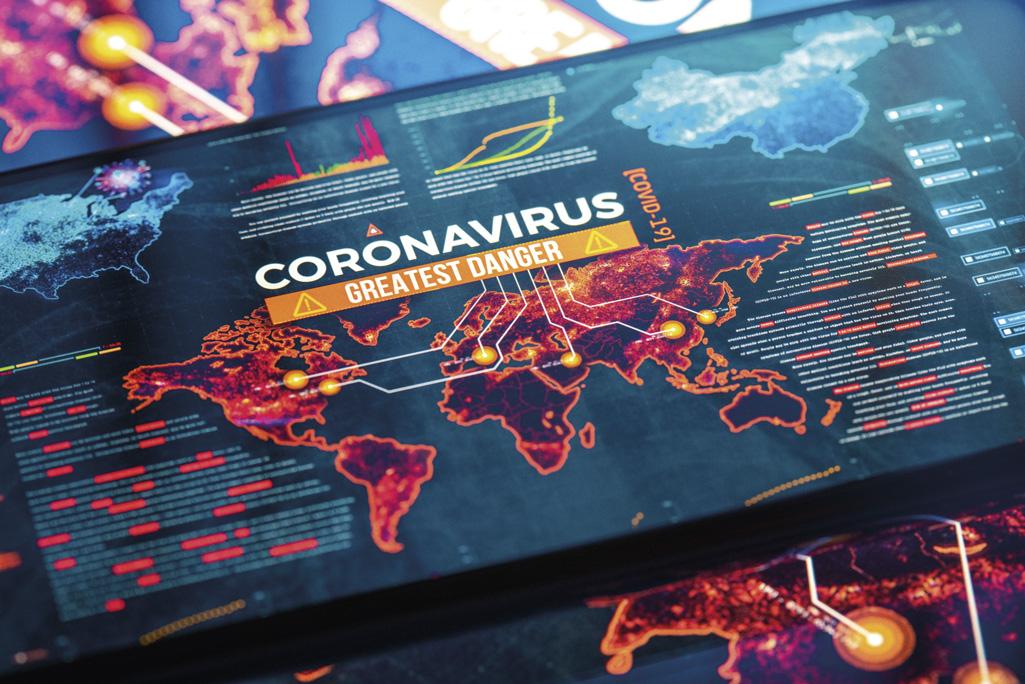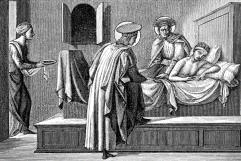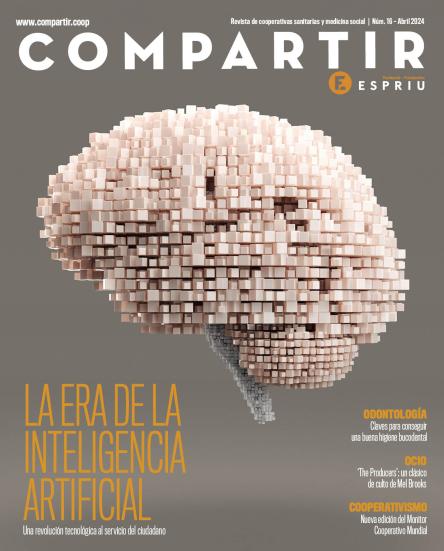
“We will live in a world that will be different, but it doesn’t have to be worse”
Author, economist and doctor in Economic History, Emanuele Felice reflects on the changes caused by the pandemic for the magazine Compartir, and offers his positive view on the immediate future.
Emanuele Felice is a renowned Italian economist and doctor in Economic History from the University of Pisa. Currently, he combines his work as an author and a prolific column-writer with that of professor of Economics and Political Economics at the Uniersità D’Annunzio, in Pescara.
"Nothing will ever be the same again.” This is one of the most repeated mantras when talking about the so-called new normality due to the Covid-19 pandemic. Mankind has always overcome each adverse episode in history, the search for long-desired happiness. Seeking alternative routes and taking advantage of the changes to turn them into opportunities. But the lack of knowledge about the coronavirus is creating uncertainties about the future. Can we be optimistic? What have we learnt from this pandemic? Will it help us in the future? Are we ready to face up to the economic crisis?
We are looking for answers, talking to Emanuele Felice, a renowned Italian economist, doctor in Economic History from the University of Pisa, a prolific column-writer and author of several books, amongst which is An Economic History of Happiness (Ed. Crítica). Well-versed in history and in the great changes caused by epidemics, Felice sees the glass as half full. “Overall, nothing will be the same for a time. But when everything has passed, when the vaccine arrives, we will live in a world that will be different, although it shouldn’t be worse. Europe should become more supportive and compact; we will focus our attention more on health and on the healthcare system. Additionally, working from home could become a solution that is also beneficial for the environment. If we want to see the crisis from an optimistic point of view, it has speeded up the structural unification change process of Europe, which would otherwise have been much slower.”
Learning
When faced with changes as important as the ones caused by Covid-19, a decisive factor entails learning from the mistakes of the past. “I have the impression that during these months of lockdown, we have learned more about the value of human relations, which we previously took for granted.
With the impossibility of going out, we have realised the importance of personal relationships. Normally, historical occurrences are not interruptions. Epidemics and wars have never been interruptions, rather change processes that push society, the economy and the institutions in a different direction,” Felice indicates. The economist points towards a dual route, with clearly marked opposites. “I see that this crisis is strengthening a democratic public opinion, but at the same time it is increasing the strength of the more authoritarian regimes. Looking back, it is similar to what happened with the Plague of 1347. The same epidemic accentuated the exit of the feudal world in Western Europe and led to the rise of the cities. On the other hand, in Eastern Europe, where the feudal hold was stronger, it caused a strengthening of feudalism,” he recalls.
Felice, who considers that “when the vaccine arrives, social relations will go back to what they were before,” indicates a prompt economic recovery. “If we manage to bring an end to the epidemic in 2020, I think that in 2021 the economic recovery will begin, unless the outbreaks are extended over time. I believe that there will be a recovery because people will want to go out, to spend, to live…”
Human capacity to face up to the situation and the changes that could arise will also be decisive. Are we ready to have a tough time? “I am optimistic on this point. And I believe that, ultimately, we are even better than before the epidemic. Imagine living through this situation without the current speed of internet, without the possibility of working from home or of communicating with your family members… In addition, the healthcare response has been much better than in the past. We have faced up to this crisis with better tools and the result, if we talk about mortality, cannot be compared to the Plague, which killed a third of the European population. With the coronavirus, the ‘end of the world’ has not been mentioned.”
The idea of how to be happy while living alongside the pandemic is another topic that has also blossomed during the lockdown. “I think that there is a change in the concept of happiness. Income is important, but consumerism is not the only thing that leads to happiness. Human relationships and rights are the true path to follow. This pandemic has shown that these dimensions are vital. During this time, we haven’t been able to be happy consuming. We have had to stop an economic system that seemed unstoppable in order for us to realise that there are more important things; and that health is the most important of them all. We have had to recover the dimension of human relationships, which have been the centre of the lockdown,” Felice explains.
For all these reasons, the writer and economist remains firm in a “moderately optimistic” posture when looking to the future. “Scientific and technological progress has given us conditions to live better, but care must be taken with the political dimensions that govern these advances. The future will depend on how we use the progress that we have achieved. The fundamental point (and once again in this crisis, this has been demonstrated), is that progress improves our living conditions,” he concludes.



